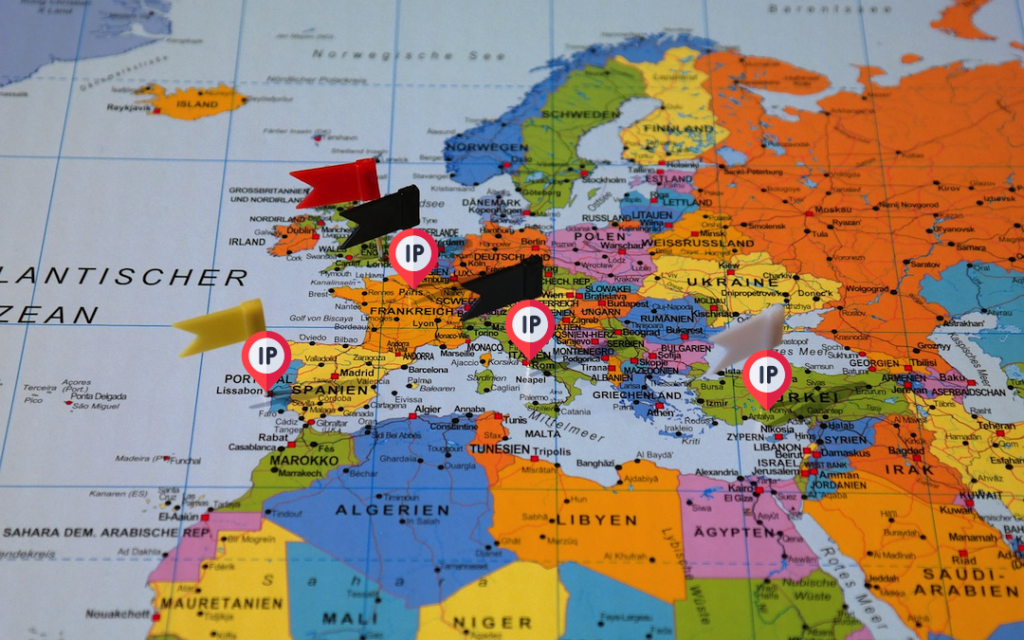In today’s digital age, our online activities have become a window to our private lives. From browsing websites to using apps, every online interaction leaves a trail of data that can be traced back to us. One of the most significant aspects of this data trail is your IP address—a unique identifier that can be used to determine your location. This process, known as IP location tracking, raises important questions about privacy, security, and how safe your online presence really is. In this article, we will delve deep into IP location tracking, its benefits, risks, and what you can do to safeguard your online activities.
What is IP Location Tracking?
An IP address (Internet Protocol address) is a unique string of numbers assigned to each device connected to a network that uses the Internet Protocol for communication. IP location tracking involves using this address to determine the geographical location of the device. The location data can range from identifying the country and city to the specific postal code or street level in some cases.
Websites, apps, and online services use IP location tracking to tailor content to users, enforce geo-restrictions, and deliver personalized advertisements. However, while there are legitimate uses, there are also concerns regarding privacy and security that users should be aware of.
How Does IP Location Tracking Work?
IP location tracking involves several steps that enable websites and services to pinpoint your location:
- IP Address Assignment: When you connect to the internet, your Internet Service Provider (ISP) assigns your device a unique IP address. This address can provide a general sense of your geographic location.
- Data Collection: Websites and online services collect IP addresses when you visit them. This data is often stored in logs or databases.
- Geolocation Database Match: The collected IP addresses are matched against geolocation databases, which maintain information on the approximate locations of IP ranges. These databases are continuously updated to provide more accurate location data.
- Location Detection: Based on the information from the geolocation database, websites and services can determine your general location and customize their content or services accordingly.
The Benefits of IP Location Tracking

While IP location tracking is often viewed with suspicion, it does have legitimate applications:
- Localized Content Delivery: Websites use IP tracking to deliver content relevant to your region, such as news, weather, and events.
- Targeted Advertising: Advertisers use location data to show ads that are relevant to your geographical area, improving the effectiveness of their campaigns.
- Enhanced Security: Financial institutions and online platforms may use IP tracking to detect suspicious activities, such as logging in from an unusual location.
- Geo-Restriction Compliance: Streaming services and content providers use IP data to comply with regional licensing agreements, restricting access to certain content based on location.
The Risks of IP Location Tracking
Despite the benefits, IP location tracking poses several privacy and security risks:
- Privacy Invasion: Your IP address can reveal your location without your consent, enabling websites, advertisers, or malicious actors to build a profile based on your online behavior.
- Cybersecurity Threats: Cybercriminals can use IP location data to launch targeted attacks or scams, especially if they know your approximate location.
- Stalking and Harassment: In some cases, IP tracking can be used for stalking or harassment by revealing your location to individuals with malicious intent.
- Data Breaches: If IP data is stored insecurely, it could be exposed in a data breach, compromising your privacy.
- Government Surveillance: Government agencies may use IP location tracking for mass surveillance or to monitor specific individuals.
How to Protect Your Online Privacy from IP Location Tracking
Fortunately, there are several steps you can take to protect yourself from IP location tracking:
1. Use a Virtual Private Network (VPN)
A VPN masks your IP address by routing your internet traffic through a remote server in a different location. This makes it much harder for websites and services to track your real location. Additionally, VPNs encrypt your internet traffic, adding another layer of security.
2. Use Proxy Servers
A proxy server acts as an intermediary between your device and the internet, masking your IP address with its own. While proxies do not provide the same level of encryption as VPNs, they can still offer a basic level of privacy for everyday browsing.
3. Activate Private Browsing Modes
Most web browsers have private browsing modes that do not store cookies, browsing history, or temporary files. While this mode does not hide your IP address, it does reduce the amount of information available to websites and online trackers.
4. Clear Cookies and Cache Regularly
Cookies and cached data can store a wealth of information about your online activities, including your IP address. Regularly clearing these files can help reduce your digital footprint and limit tracking.
5. Use the Tor Network for Anonymity
The Tor network provides high levels of anonymity by routing your traffic through multiple servers worldwide, making it almost impossible to trace your real IP address. However, Tor can significantly slow down your internet speed and is often used for high-security needs.
Is IP Location Tracking Always Bad?

It’s essential to understand that IP location tracking is not always malicious. It can enhance user experience, improve service security, and support legitimate business operations. However, the risk comes from misuse or abuse by third parties who may collect, store, and use your data without your consent or knowledge.
Future Trends in IP Location Tracking
As technology evolves, IP location tracking is becoming more accurate and sophisticated. The rise of the Internet of Things (IoT) means that even more devices are connected to the internet, increasing the potential for data collection. Staying informed about new privacy tools and methods is essential to protect your online presence in this ever-changing landscape.
Conclusion
IP location tracking is a powerful tool that can significantly impact your online experience. While it offers many benefits, it also presents privacy and security risks that cannot be ignored. By understanding how IP location tracking works and taking proactive measures to protect your online presence, you can navigate the digital world more safely and confidently.
FAQs
Can IP location tracking be turned off?
Why do websites track my IP location?
Is using a VPN completely foolproof against IP tracking?
How often should I clear cookies and cache to protect my privacy?
Read More About: IP Location
Read More: The Importance of 127.0.0.1:49342 in Localhost Communication





























































